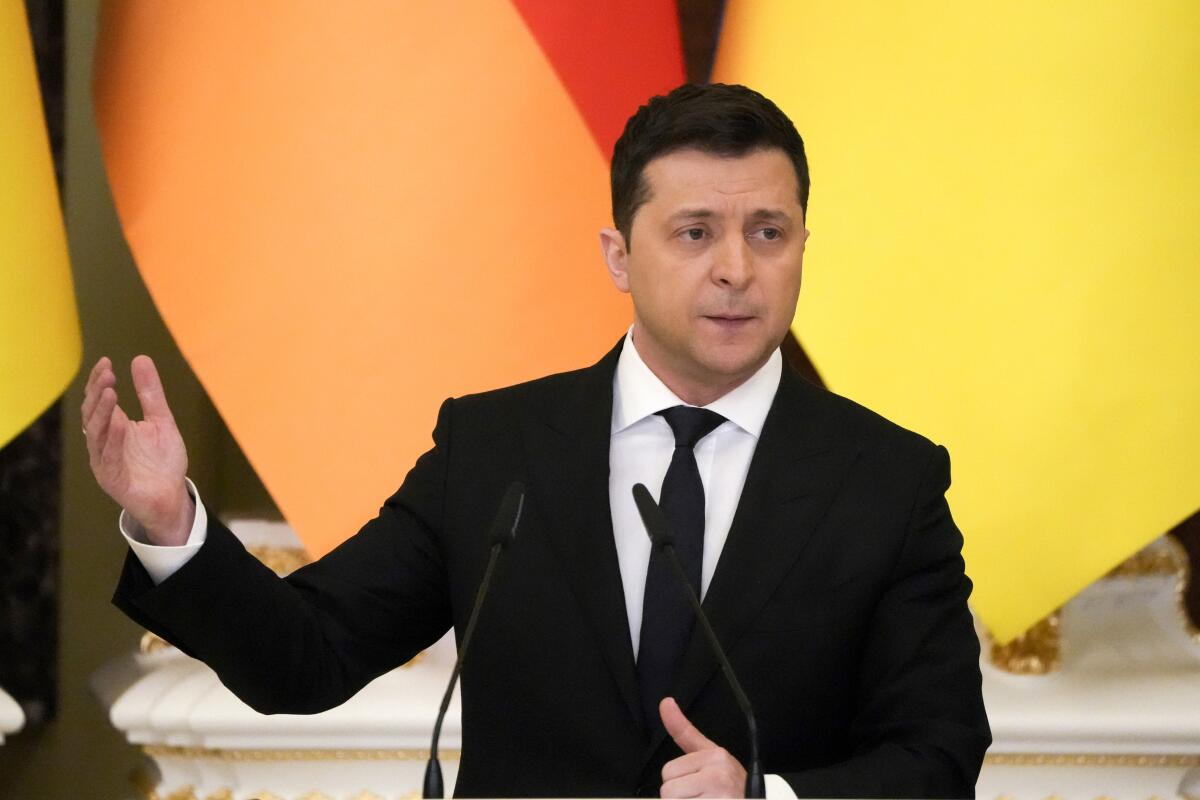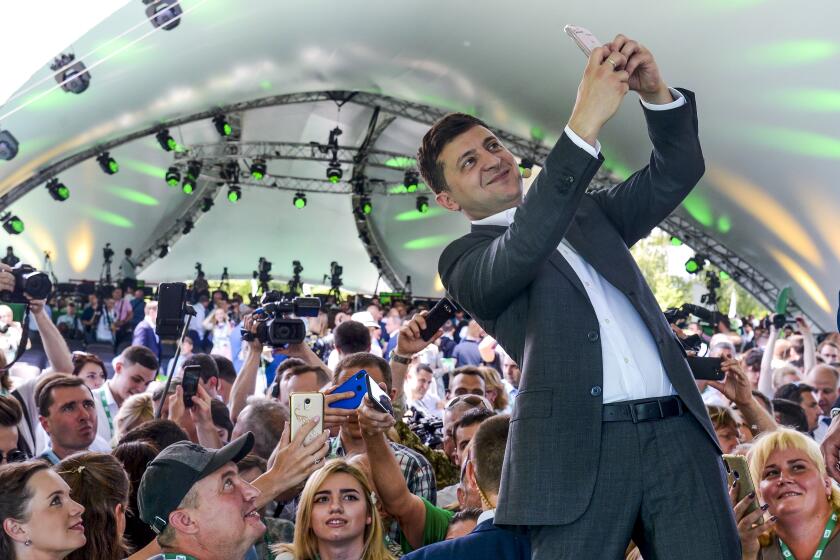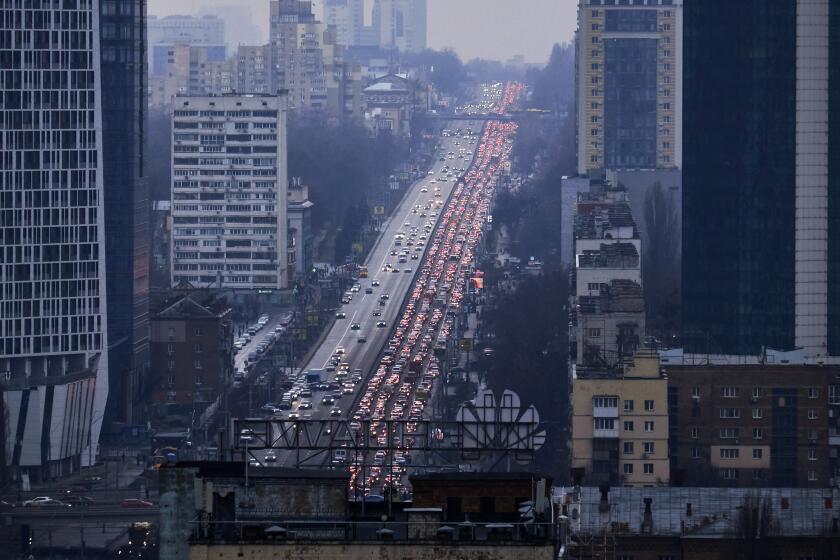Who is Ukraine’s president? And can he handle this crisis?

- Share via
KYIV, Ukraine — As Russia moves ahead with its invasion of Ukraine, world leaders and the public have turned to Ukrainian President Volodymyr Zelensky for on-the-ground information and signals of what may happen next.
The former comedy sketch artist, who won a shocking landslide victory as a political outsider in 2019, has now been forced to declare martial law in his embattled nation and is encouraging his compatriots to take up arms.
And many are starting to wonder whether their 44-year-old president has the smarts and strength to lead through such a perilous moment.
Here’s what we know:
Who is the president of Ukraine?
Before Zelensky made a name for himself in politics, the Russian-speaking entertainer found fame with his comedy troupe, Kvartal 95. He starred in “Servant of the People,” a popular sitcom about a history teacher who gets elected president after a viral video depicts his rant about corruption.
Life imitated art, with Zelensky becoming Ukraine’s real-life president in 2019.
During his presidential bid, Zelensky positioned himself as a political outsider, eager and willing to shake up the establishment. His platform was primarily focused on two goals: breaking up unscrupulous oligarchs’ economic power and ending the war in the east.
Though the specifics of his plans were unclear, the former comedian handily defeated President Petro Poroshenko, who made his fortune in the candy business as Ukraine’s so-called “chocolate king.”
Some Ukrainians are starting to wonder whether their neophyte leader has the smarts and strength to lead them through a moment of peril.
How do the Ukrainians feel about him?
Despite his landslide victory and a year and a half of relative popularity, the faith of the Ukrainian people in their president largely disappeared after Russia’s first troop buildup began last spring. Recent polls indicate that twice as many Ukrainians don’t trust him as those who do.
Some point fingers at Zelensky’s inner circle, many of them with more experience in the comedy industry than in government.
“Since the beginning of the current tensions last year, Zelensky lost the public’s trust,” Maria Zolkina, a political analyst with the Democratic Initiatives Foundation, a Kyiv-based think tank, told The Times.
In the weeks leading up to Russia’s invasion of Ukraine, Zelensky urged Ukranians to remain calm and demanded proof of an impending Russian attack, as the U.S. and NATO insisted a crisis could explode at any time.
As Russian President Vladimir Putin unleashes war in Ukraine, world leaders in Europe and beyond condemn Russia’s aggression.
Now, Russia has moved forward with its assault on Ukraine, with airstrikes targeting the country’s defenses, explosions echoing across cities and troops crossing the border by land and sea.
On Thursday, a presidential adviser said Russian forces succeeded in taking control of the Chernobyl nuclear plant, the site of the world’s worst nuclear accident in April 1986.
“Our defenders are giving their lives so that the tragedy of 1986 will not be repeated,” Zelensky said on Twitter. “This is a declaration of war against the whole of Europe.”
What’s next?
As Zelensky deals with attacks on his home soil, President Biden on Thursday said he was imposing severe sanctions on Russia for its “premeditated attack” on Ukraine.
The sanctions are meant to “limit the ability of Russia to do business in dollars, euros, pounds and yen,” Biden said. “We are going to stunt the ability of [Moscow] to finance and grow the Russian military.”
The U.S. also will deploy approximately 7,000 additional service members to Europe. The move is meant to reassure NATO Allies and discourage further aggression from Russia.
Meanwhile, the U.N announced it is freeing $20 million for humanitarian needs in Ukraine.
“Stop the military operation. Bring the troops back to Russia,” Secretary-General Antonio Guterres urged at U.N. headquarters in New York.
“It’s not too late to save this generation from the scourge of war,” Guterres said.
More to Read
Sign up for Essential California
The most important California stories and recommendations in your inbox every morning.
You may occasionally receive promotional content from the Los Angeles Times.














